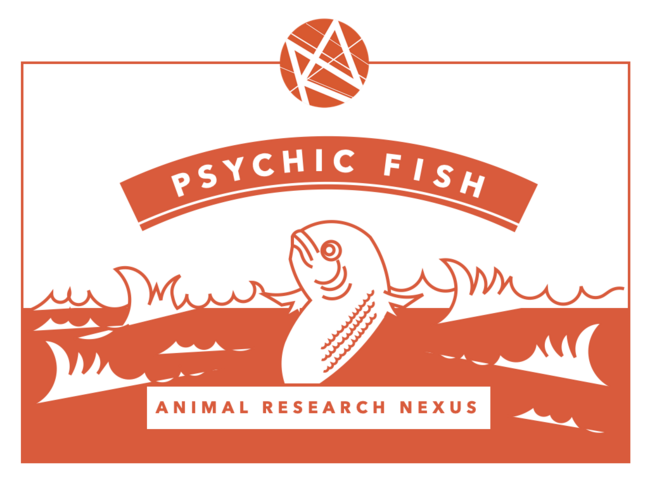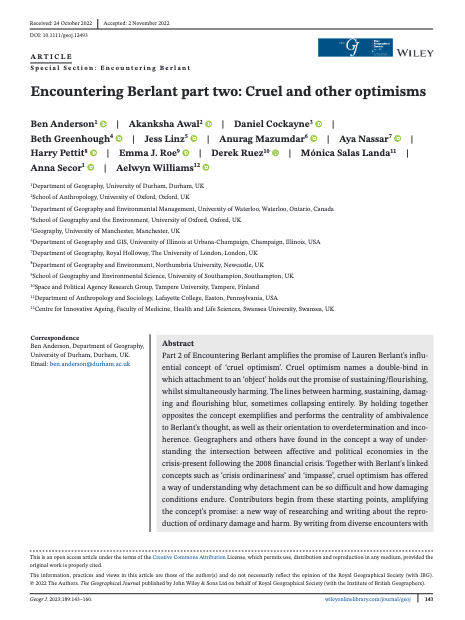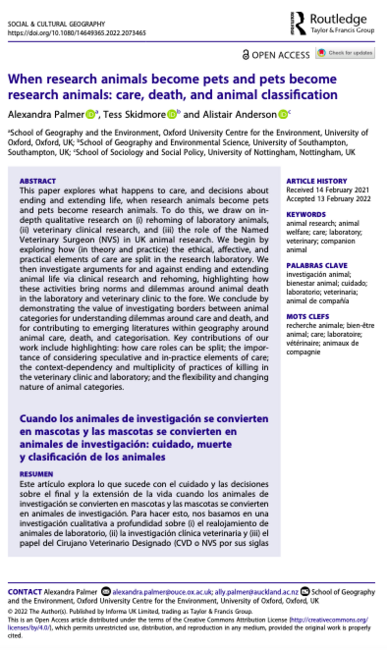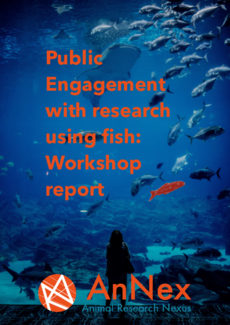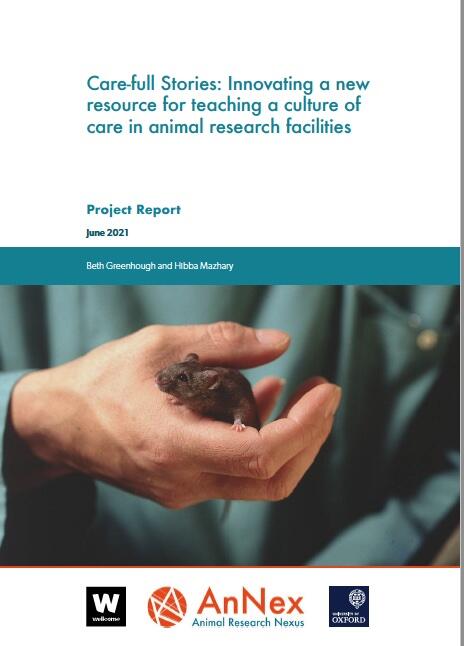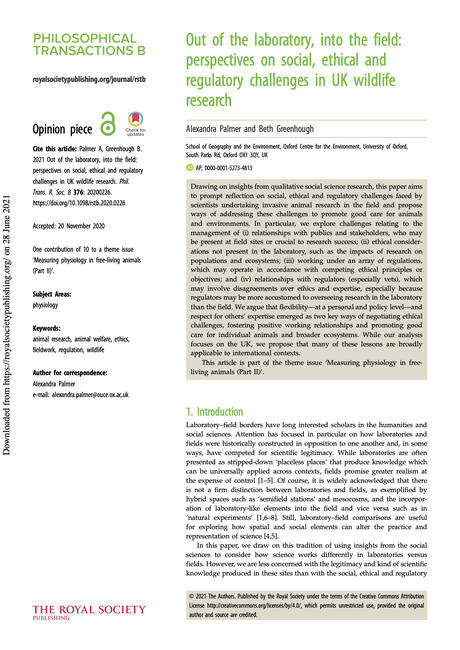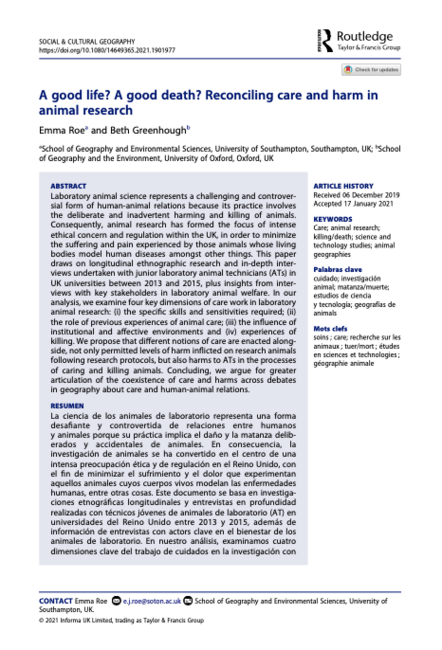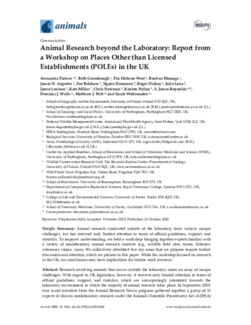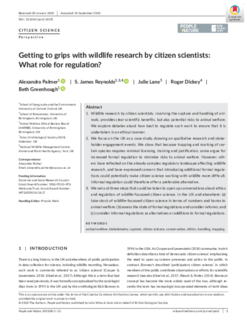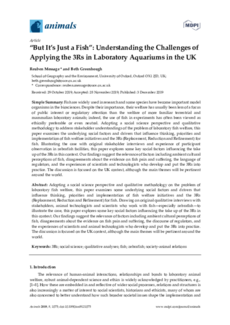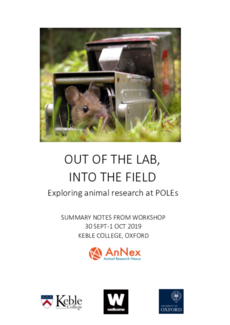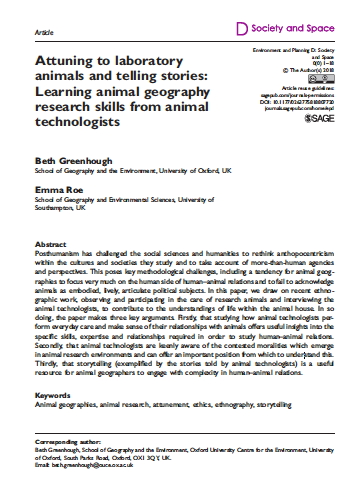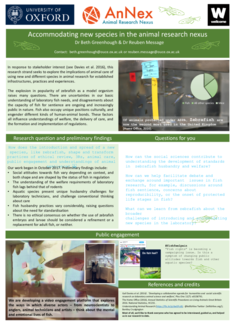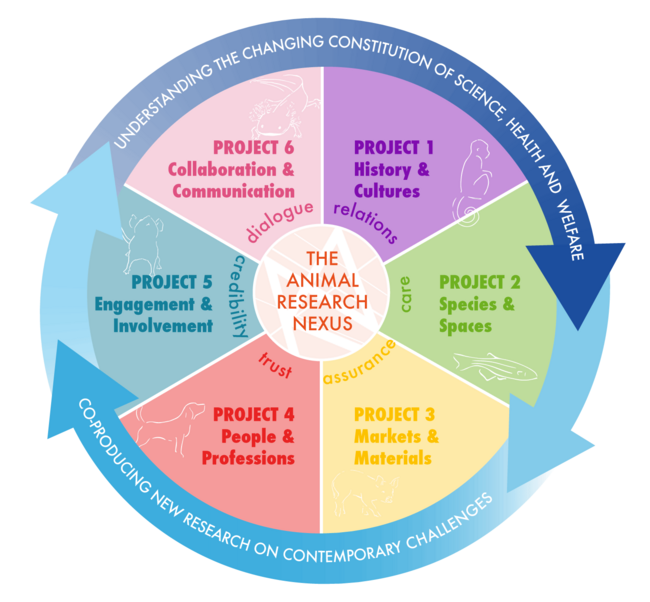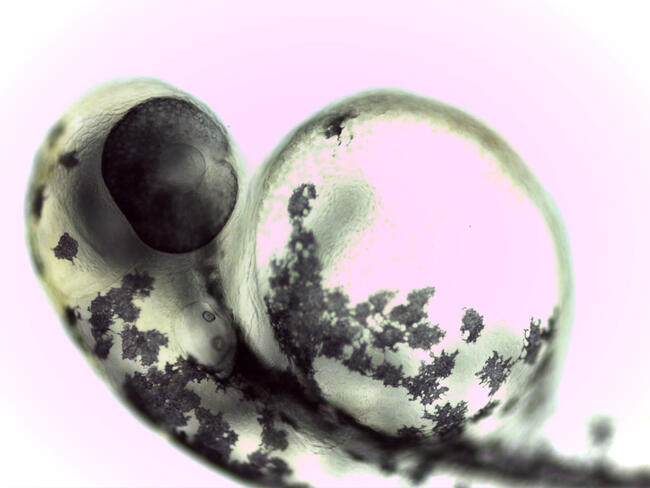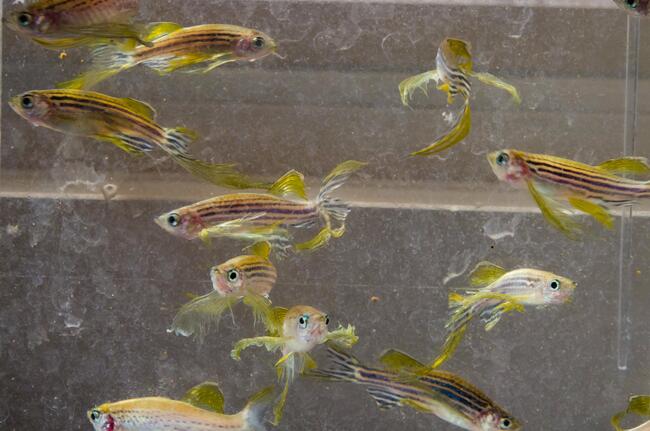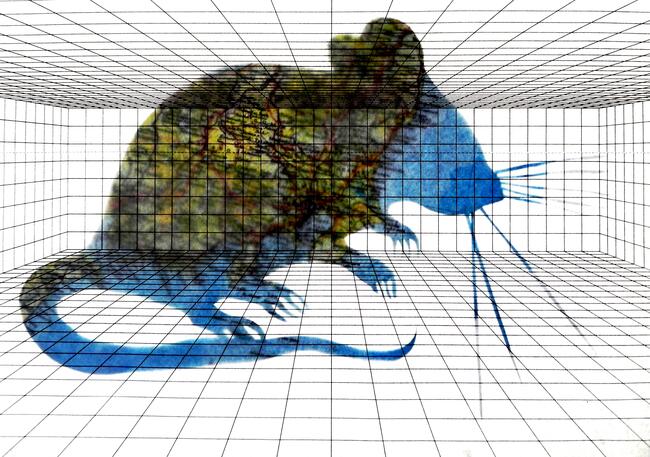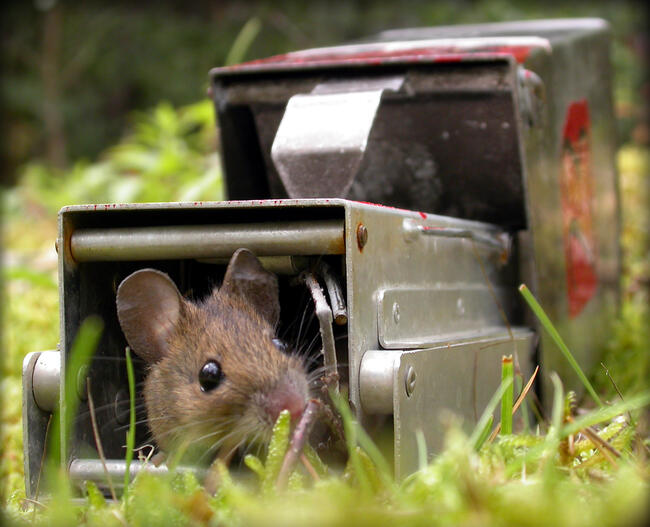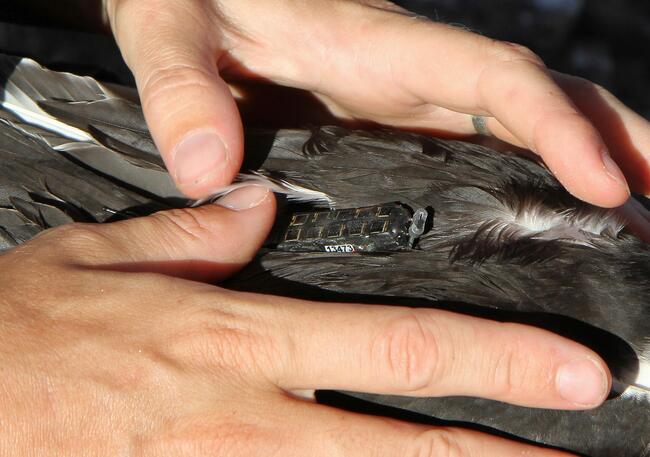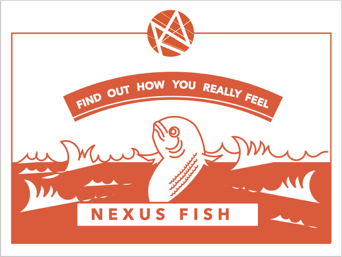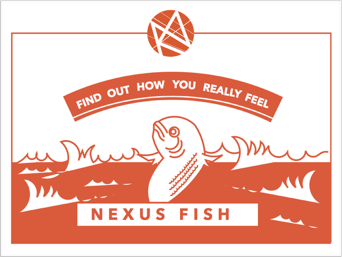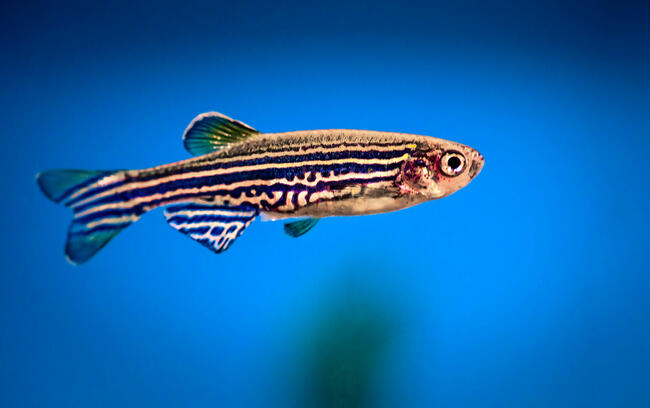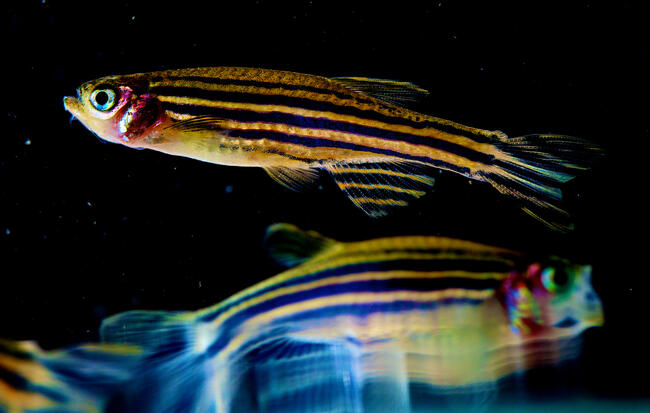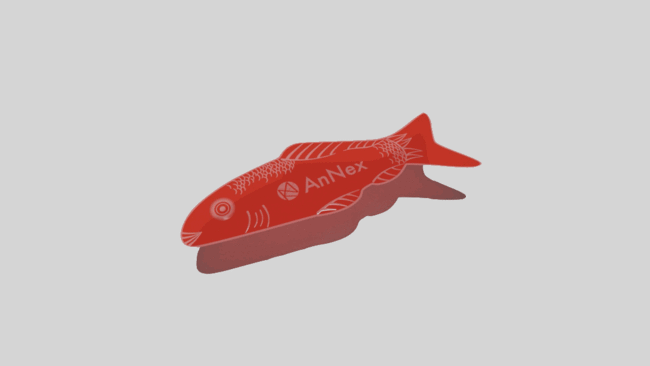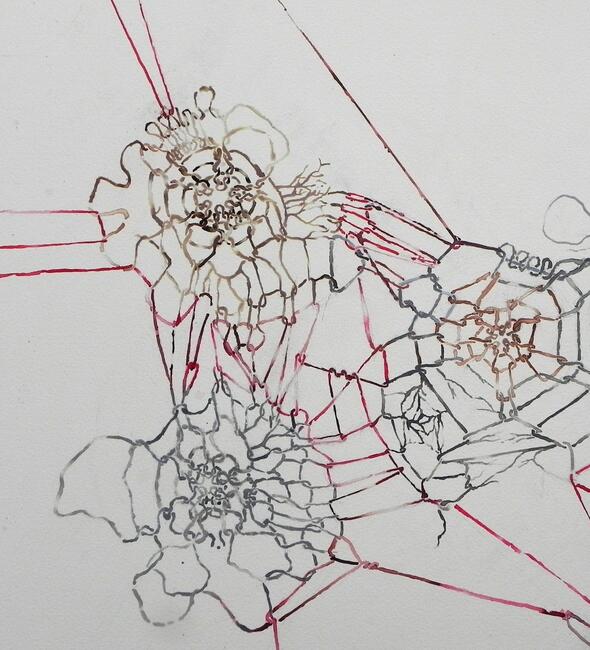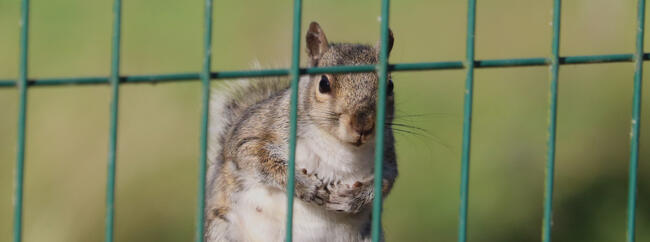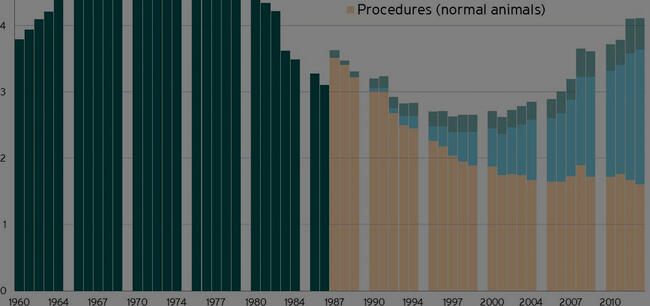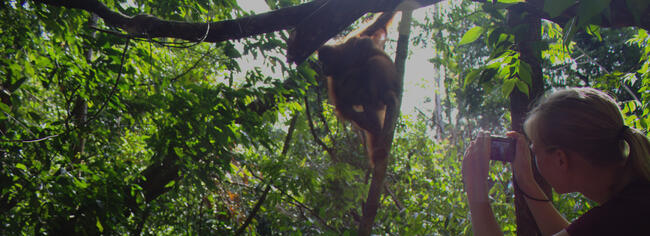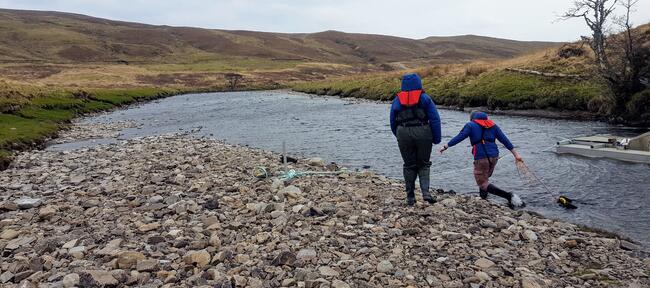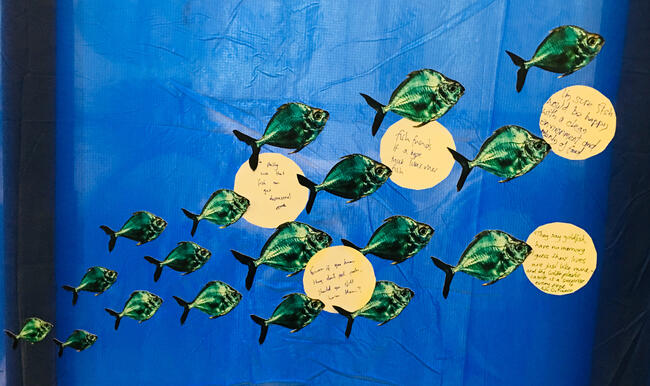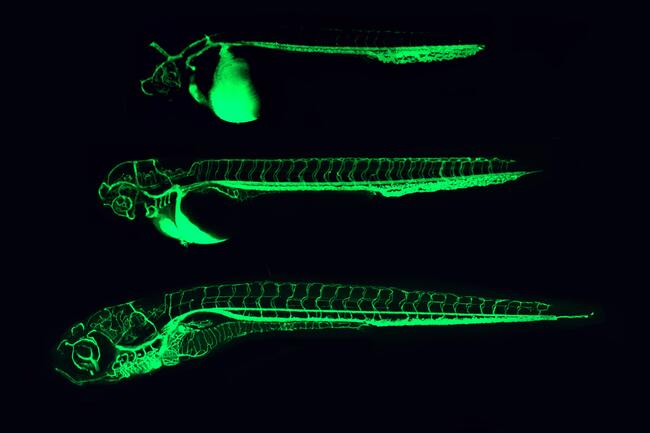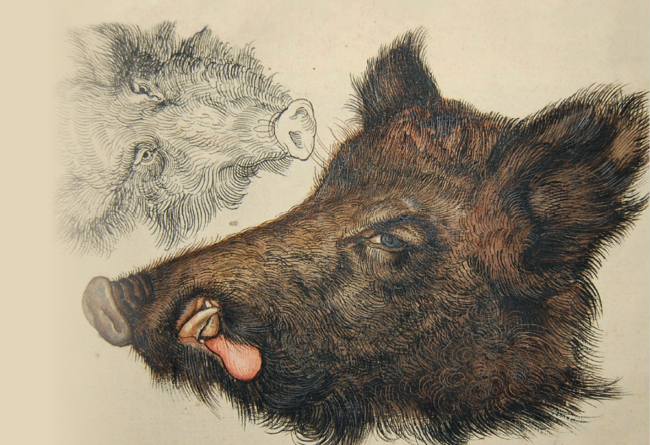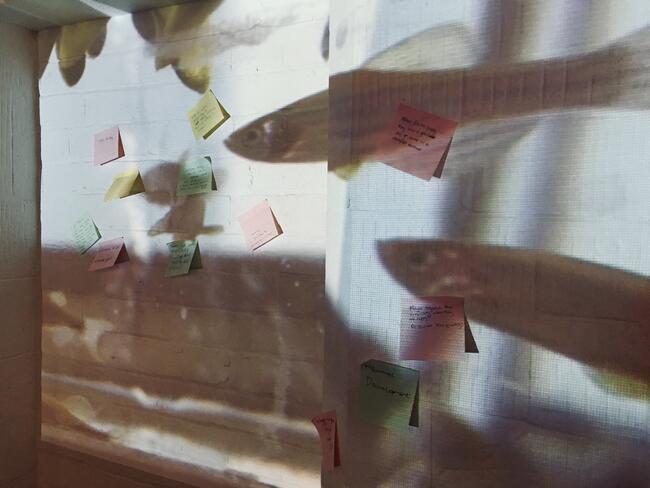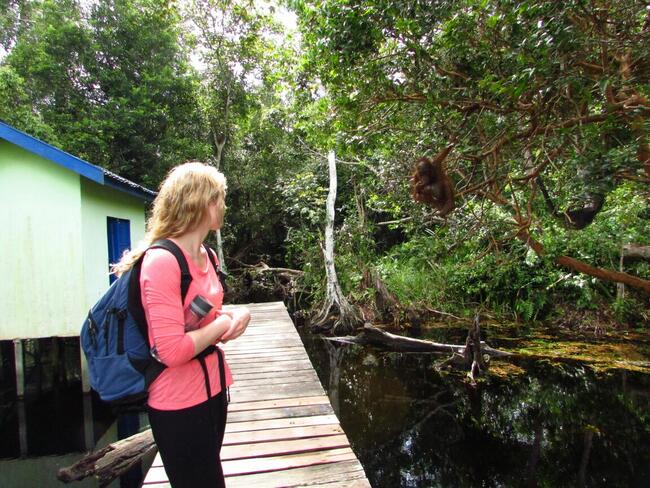Species & Spaces
Understanding how species and clinical sites in animal research challenge established infrastructures, practices and cultures.

Based at the School of Geography and the Environment, at the University of Oxford, Species and Spaces seeks to understand the challenges that different and unusual species and sites introduce into animal research, and what these challenges might mean for established infrastructures, practices, and cultures of animal care.
Our research is concentrating into two streams. ‘Species’ focuses mainly on fish, and especially the ongoing explosion in the use zebrafish in research over the last two decades, as well as the so-called ‘higher invertebrates’, cephalopods and crustaceans. ‘Spaces’ examines research at Places Other Than Licensed Establishments (POLES), such as wildlife field projects, fisheries, farms, zoos, and veterinary clinics.
A number of broad questions guide our work: How do human-animal relationships influence the implementation of animal welfare regulations? How does the introduction and spread of different species and sites transform practices of ethical review, the 3Rs, animal care, and public engagement? How are the borders between regulated and unregulated research shaped by ideas about animal sentience and suffering, the ethics applied to different categories of animals (e.g., pets, wildlife, and farm animals), and definitions of science, veterinary treatment, and animal management?
We are approaching these questions using a combination of methods including documentary analyses, in-depth interviews with stakeholders (e.g. researchers, regulators, animal technicians, Named Persons, suppliers, regulators, and welfare charities), and participant observation in different settings in industry and university sectors.
Relevant, tagged site content:
Engagement Activities
Find out how you really feel about fish! The psychic fish is an interactive encounter that invites people to think about fish and their use in research.
Publications
Beth and Emma have contributed a short piece on how American political theorist Lauren Berlant's concept of 'cruel optimism' can be thought with in relation to animal research.
This paper explores what happens to care, and decisions about ending and extending life, when research animals become pets and pets become research animals. To do this, we draw on in- depth qualitative research on (i) rehoming of laboratory animals, (ii) veterinary clinical research, and (iii) the role of the Named Veterinary Surgeon (NVS) in UK animal research. Key contributions of our work include highlighting: how care roles can be split; the impor- tance of considering speculative and in-practice elements of care; the context-dependency and multiplicity of practices of killing in the veterinary clinic and laboratory; and the flexibility and changing nature of animal categories.
Fish are the third most commonly used protected species in research (Understanding Animal Research, 2021) and are increasingly used in initiatives to engage publics with biomedical research. This workshop was convened in order to explore these developments, share experiences, and assess the challenges and opportunities of including discussion of fish welfare in relevant public engagement activities.
This report describes the design, piloting and evaluation of a 2–3-hour training exercise that uses storytelling to reflect upon the culture of care in animal research establishments.
Drawing on insights from qualitative social science research, this paper aims to prompt reflection on social, ethical and regulatory challenges faced by scientists undertaking invasive animal research in the field. We explore challenges relating to the management of (i) relationships with publics and stakeholders; (ii) ethical considerations not present in the laboratory; (iii) working under an array of regulations; and (iv) relationships with regulators (especially vets). We argue that flexibility—at a personal and policy level—and respect for others’ expertise emerged as two key ways of negotiating ethical challenges, fostering positive working relationships and promoting good care for individual animals and broader ecosystems.
Laboratory animal science represents a challenging and controversial form of human-animal relations because its practice involves the deliberate and inadvertent harming and killing of animals. We propose that different notions of care are enacted alongside, not only permitted levels of harm inflicted on research animals following research protocols, but also harms to ATs in the processes of caring and killing animals.
Animal research conducted outside of the laboratory faces various unique challenges, but has received only limited attention in terms of official guidelines, support, and statistics.
Citizen science involves participation by members of the public in scientific research. In wildlife research, citizen scientists might be involved in the capture and handling of animals (e.g.
This paper examines some underlying social factors and drivers that influence thinking, priorities and implementation of fish welfare initiatives and the 3Rs (Replacement, Reduction and Refinement) for fish. Drawing on original qualitative interviews with stakeholders, animal technologists and scientists who work with fish—especially zebrafish—to illustrate the case, it explores some key social factors influencing the take up of the 3Rs in this context.
These notes summarise some key topics of conversation at the workshop 'Out of the lab, into the field: Exploring animal research at POLEs', held on the 30th Sept-1st Oct, 2019, at Keble College, Oxford. Please feel free to share these notes with your colleagues and wider networks.
This paper draws on ethnographic work with laboratory animal technologists to offer insights into the skills required to study human–animal relations and the role played by storytelling in negotiating the contested moral economies of animal research.
This poster explores the increase in popularity of the zebrafish in animal research in the UK, raising questions about how the species is incorporated into and transforms animal research infrastructures and practices of care and welfare.
Events
The Animal Research Nexus Programme is hosting a conference entitled 'Researching Animal Research' on 30th – 31st of March at the Wellcome Collection in London.
How, why (and why not) are fish utilised as mascots in public engagement with animal research?
Reuben Message presented at the RSPCA organised 'Focus on Fish' online event on the 23rd of February 2021.
What kinds of ethical and practical challenges do wildlife researchers face? How do these challenges compare with those faced by researchers working with laboratory animals?
Citizen science is a fundamental contributor to wildlife research in the UK but its regulation can be complex.
Our ‘Psychic Fish’ intervention had another successful outing last Friday night at the Oxford Museum of Natural History.
Oxford University’s first Open Doors Community Fair, taking place in the Weston Library’s stunning Blackwell Hall in Broad Street on Saturday 10 September between 1pm and 4pm.
Friday 28 September is European Researcher’s night, and for the fourth time Manchester Museum will be hosting Science Uncovered Manchester - a special late opening showcasing Manchester’s finest researchers and their work for an adult audience.
On the 29th of November 2018, Animal Research Nexus team members helped to organise an event on the standardisation of welfare terminology.
Blog entry
In our work on the cultures of care and communication in animal research, we often asked ourselves the question: why are fish not the ‘poster critters’ of animal research?
Care is complicated and hard.
Leading research organisations, such as the UK’s Wellcome Trust (2020), recognise there is a need to create a more care-full and supportive working environmen
In part 1 of this blog series, we introduced the idea of a ‘spectrum of visibility’ in animal research, with
The COVID-19 crisis has clearly had significant effects on animal research, including research in the field.
Over 175,000 rats are used in research and testing in the UK every year, with millions more used worldwide. Many of these are housed in cages that do not allow them to stand upright as adults. For example, the current Code of Practice to the UK 1
Social scientists and historians have long observed that laboratory and field research are rather different (e.g., Gieryn, 2006; Kohler, 2002).
Can animals volunteer to participate in research? If so, what does volunteering look like, and what does it mean for animal welfare?
In the Species and Spaces project, we’re exploring people’s perceptions around fish use, sentience, and how these shape and define assumptions around their welfare requirements.
"How different does a fish really feel from one day to the next?" Zebrafish larvae become protected animals at the age of 5 days post fertilisation. At 4 days, they are not. Why is this?
Our approach to research emphasises cross-project collaborations and transdisciplinary thinking. But what does this mean, in practical terms, for the work that we do and for our participants?
In July 2018 several members of the Animal Research Nexus team were invited to an exciting workshop at the University of Nottingham.
The way we think about the welfare needs of animals is always conditioned by our prior experiences and preconceptions. This is especially true of fish.
Announcements
We are delighted to announce that Ally Palmer joined the Animal Research Nexus team based at Oxford University in July 2018. Ally is an anthropologist who recently completed her PhD on conflicts around orangutan rehabilitation.
